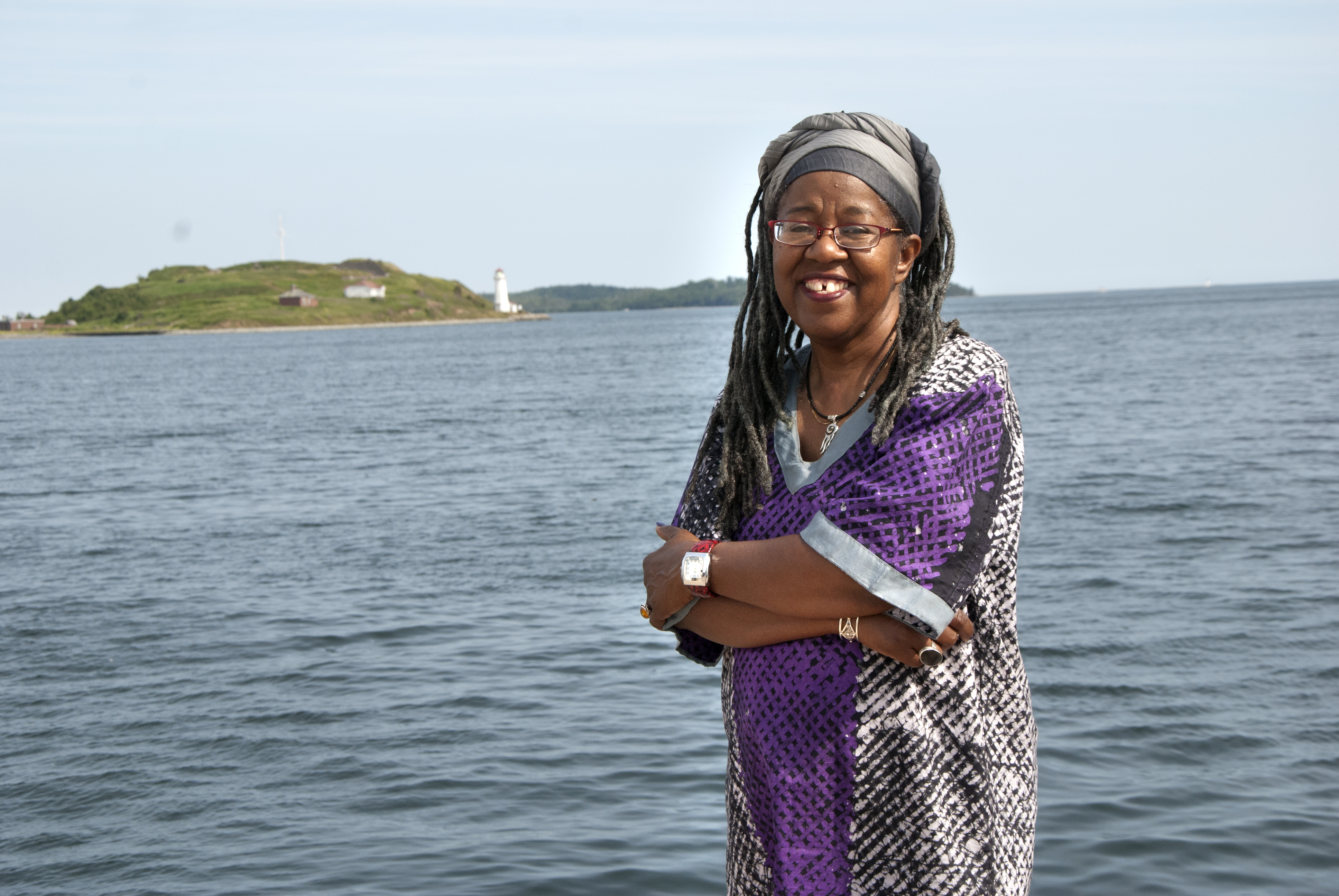Browse "People"
-
Article
Sylvain Lelièvre
Sylvain Lelièvre, singer-songwriter, author, composer, performer, poet, writer and teacher (born 7 February 1943 in Québec City, QC; died 30 April 2002 in Lévis, QC).
"https://d2ttikhf7xbzbs.cloudfront.net/media/media/f31141fb-00db-478e-af8b-a9810fdc9b0c.jpg" // resources/views/front/categories/view.blade.php
https://d2ttikhf7xbzbs.cloudfront.net/media/media/f31141fb-00db-478e-af8b-a9810fdc9b0c.jpg
-
Article
Sylvia Burka
Sylvia Burka, speed skater, cyclist, coach (b at Winnipeg 4 May 1954). Through hard work and determination, she overcame a visual handicap to become a world-class athlete in 2 sports. Despite losing an eye in a childhood accident, Burka was Canada's national junior SPEED-SKATING champion by age 15.
"https://development.thecanadianencyclopedia.ca/images/tce_placeholder.jpg?v=e9dca980c9bdb3aa11e832e7ea94f5d9" // resources/views/front/categories/view.blade.php
https://development.thecanadianencyclopedia.ca/images/tce_placeholder.jpg?v=e9dca980c9bdb3aa11e832e7ea94f5d9
-
Article
Sylvia Fair
Sylvia Doreen Fair (née Shapiro), soprano, teacher (born 25 August 1928 in Calgary, AB; died 12 September 2024 in Victoria, BC).
"https://development.thecanadianencyclopedia.ca/images/tce_placeholder.jpg?v=e9dca980c9bdb3aa11e832e7ea94f5d9" // resources/views/front/categories/view.blade.php
https://development.thecanadianencyclopedia.ca/images/tce_placeholder.jpg?v=e9dca980c9bdb3aa11e832e7ea94f5d9
-
Article
Sylvia Hamilton
Sylvia D. Hamilton, filmmaker, writer, educator (born in Beechville, NS). Sylvia Hamilton specializes in re-evaluating Canadian history and focusing on the perspectives of Black Canadians, particularly Black Canadian women. Her films include Black Mother Black Daughter (1989); the Gemini Award winner Speak It! From the Heart of Black Nova Scotia (1993); the biographical documentary Portia White: Think On Me (2000); and The Little Black School House (2007). She has received many honours and awards, including the Nova Scotia Portia White Prize, the Pierre Berton Award from the Governor General’s History Awards for Popular Media, and the Luminary Award from the Documentary Organization of Canada (DOC).
"https://d2ttikhf7xbzbs.cloudfront.net/media/media/0ef5865a-880e-4523-9e1e-234ef2fca9d5.jpg" // resources/views/front/categories/view.blade.php
https://d2ttikhf7xbzbs.cloudfront.net/media/media/0ef5865a-880e-4523-9e1e-234ef2fca9d5.jpg
-
Article
Sylvia Olga Fedoruk
Sylvia Olga Fedoruk, OC, physicist, educator, 17th lieutenant-governor of Saskatchewan (1988-94) (born 5 May 1927 in Canora, SK; died 26 September 2012 in Saskatoon). Fedoruk was a medical physicist who helped advance cancer treatment (see Physics; Contemporary Medicine).
"https://d2ttikhf7xbzbs.cloudfront.net/sylviaolgafedoruk/sylviafedoruk.jpg" // resources/views/front/categories/view.blade.php
https://d2ttikhf7xbzbs.cloudfront.net/sylviaolgafedoruk/sylviafedoruk.jpg
-
Article
Sylvia Ostry
Sylvia Ostry (née Knelman), CC, OM, FRSC, economist, public servant (born 3 June 1927 in Winnipeg, MB; died 7 May 2020 in Toronto, ON). Sylvia Ostry was the first female chief statistician of Canada, a position that she held from 1972 to 1975 (see Statistics Canada).
"https://development.thecanadianencyclopedia.ca/images/tce_placeholder.jpg?v=e9dca980c9bdb3aa11e832e7ea94f5d9" // resources/views/front/categories/view.blade.php
https://development.thecanadianencyclopedia.ca/images/tce_placeholder.jpg?v=e9dca980c9bdb3aa11e832e7ea94f5d9
-
Article
Sylvia Saurette
Sylvia Saurette. (m Hubert). Soprano, born Letellier, south of Winnipeg, 27 Sep 1935, died Laval 14 Jul 2005; diploma (École Vincent-d'Indy) 1961.
"https://development.thecanadianencyclopedia.ca/images/tce_placeholder.jpg?v=e9dca980c9bdb3aa11e832e7ea94f5d9" // resources/views/front/categories/view.blade.php
https://development.thecanadianencyclopedia.ca/images/tce_placeholder.jpg?v=e9dca980c9bdb3aa11e832e7ea94f5d9
-
Article
Sylvia Stark
Sylvia Estes Stark, pioneer (born 1839 in Clay County, Missouri, US; died 7 November 1944 in Fruitvale, Salt Spring Island, British Columbia). Born into enslavement, Sylvia Stark was one of more than 600 Black Americans who emigrated to British Columbia in 1858 at the invitation of Governor James Douglas. She was one of the original settlers on Salt Spring Island.
"https://d2ttikhf7xbzbs.cloudfront.net/media/new_article_images/SylviaStark/SylviaStark.jpg" // resources/views/front/categories/view.blade.php
https://d2ttikhf7xbzbs.cloudfront.net/media/new_article_images/SylviaStark/SylviaStark.jpg
-
Article
Sylvia Tyson
In the duo's last years, Tyson began to perform on her own and was host 1974-80 for the CBC radio folk music program 'Touch the Earth.
"https://d2ttikhf7xbzbs.cloudfront.net/media/media/9891e330-5f02-4b0c-9d66-8ded14a1d1c8.jpg" // resources/views/front/categories/view.blade.php
https://d2ttikhf7xbzbs.cloudfront.net/media/media/9891e330-5f02-4b0c-9d66-8ded14a1d1c8.jpg
-
Article
Sylvie Bernier
Sylvie Bernier, diver (b at Québec C 31 Jan 1964). Bernier was introduced to diving at age 9 by her older brother, who brought her along to his lessons for company. She took to diving immediately and within 2 years had won
"https://d2ttikhf7xbzbs.cloudfront.net/media/media/755f0b85-942e-4d31-9cc1-16a2c637ffb9.jpg" // resources/views/front/categories/view.blade.php
https://d2ttikhf7xbzbs.cloudfront.net/media/media/755f0b85-942e-4d31-9cc1-16a2c637ffb9.jpg
-
Article
Sylvie Daigle
Sylvie Daigle, speed skater (b at Sherbrooke, Qc 1 Dec 1962). Daigle discovered speed skating at the age of nine when she went to the arena to play hockey and met some speed skaters who invited her to join them. It was the beginning of a real passion.
"https://development.thecanadianencyclopedia.ca/images/tce_placeholder.jpg?v=e9dca980c9bdb3aa11e832e7ea94f5d9" // resources/views/front/categories/view.blade.php
https://development.thecanadianencyclopedia.ca/images/tce_placeholder.jpg?v=e9dca980c9bdb3aa11e832e7ea94f5d9
-
"https://development.thecanadianencyclopedia.ca/images/tce_placeholder.jpg?v=e9dca980c9bdb3aa11e832e7ea94f5d9" // resources/views/front/categories/view.blade.php
https://development.thecanadianencyclopedia.ca/images/tce_placeholder.jpg?v=e9dca980c9bdb3aa11e832e7ea94f5d9
-
Article
Sylvie Frechette
It was not until after Waldo's retirement, however, that Sylvie Frechette blossomed. She exploded onto the world stage by winning the 1991 world solo championship and was the early favourite to capture gold at the 1992 Olympic Games.
"https://d2ttikhf7xbzbs.cloudfront.net/media/media/10350c36-a877-4bf6-a4ef-9922eae17c8d.jpg" // resources/views/front/categories/view.blade.php
https://d2ttikhf7xbzbs.cloudfront.net/media/media/10350c36-a877-4bf6-a4ef-9922eae17c8d.jpg
-
Article
Sylvio Lacharité
Lacharité, Sylvio. Conductor, administrator, composer, b Sherbrooke, Que, 3 Oct 1914, d there 13 May 1983; BA (Sherbrooke) 1936. He began his studies with his brother Lonia and Paul-Marcel Robidouxand then took piano lessons from Germaine Malépart in Montreal.
"https://development.thecanadianencyclopedia.ca/images/tce_placeholder.jpg?v=e9dca980c9bdb3aa11e832e7ea94f5d9" // resources/views/front/categories/view.blade.php
https://development.thecanadianencyclopedia.ca/images/tce_placeholder.jpg?v=e9dca980c9bdb3aa11e832e7ea94f5d9
-
Article
Symphony Nova Scotia
While the present Symphony Nova Scotia was formed in 1983, its roots go back to 1897 when Max Weil founded the Halifax Symphony Orchestra, the first professional symphony orchestra in Canada.
"https://development.thecanadianencyclopedia.ca/images/tce_placeholder.jpg?v=e9dca980c9bdb3aa11e832e7ea94f5d9" // resources/views/front/categories/view.blade.php
https://development.thecanadianencyclopedia.ca/images/tce_placeholder.jpg?v=e9dca980c9bdb3aa11e832e7ea94f5d9
